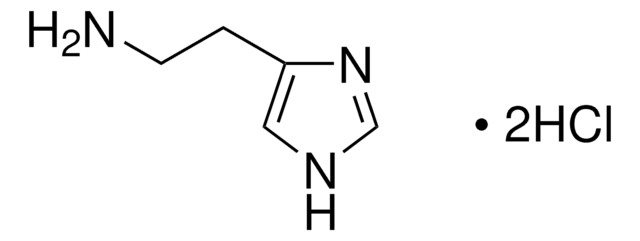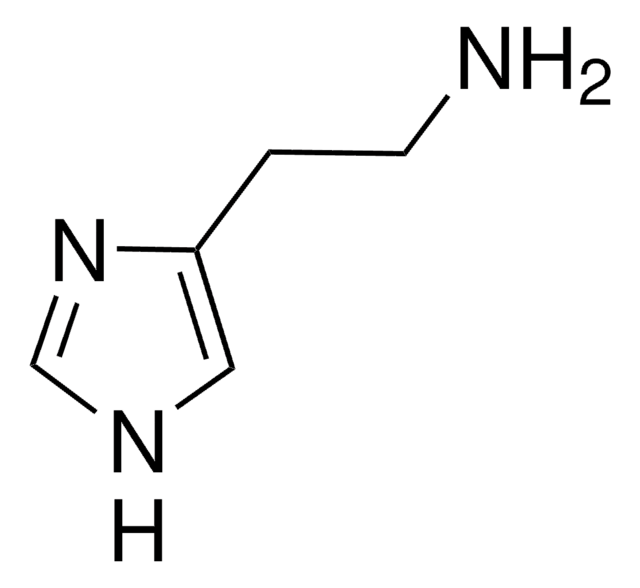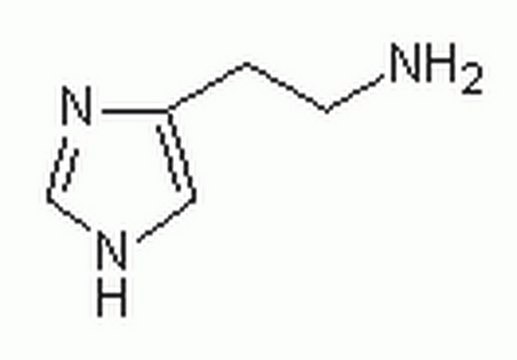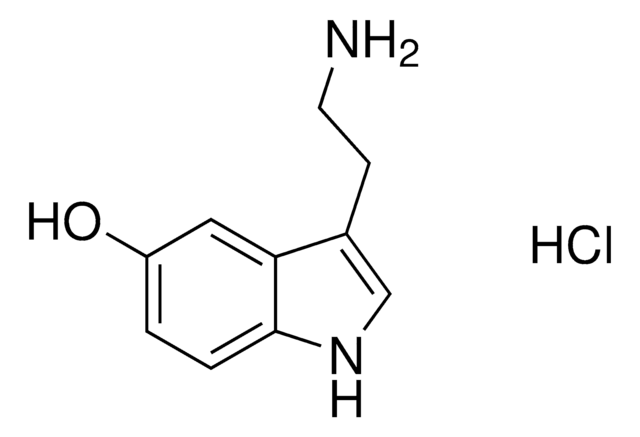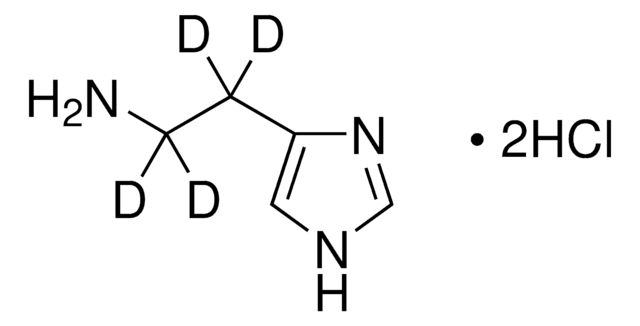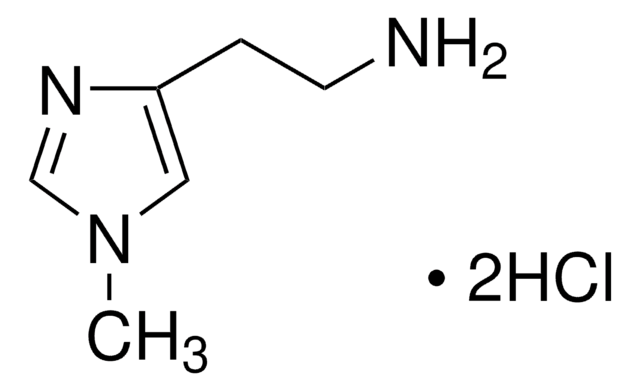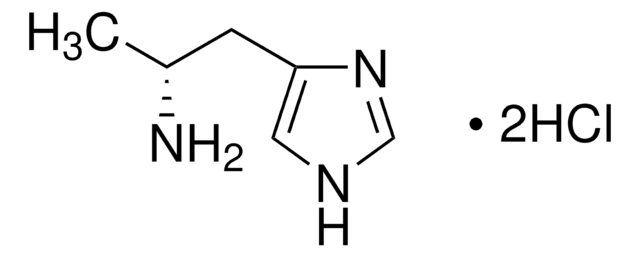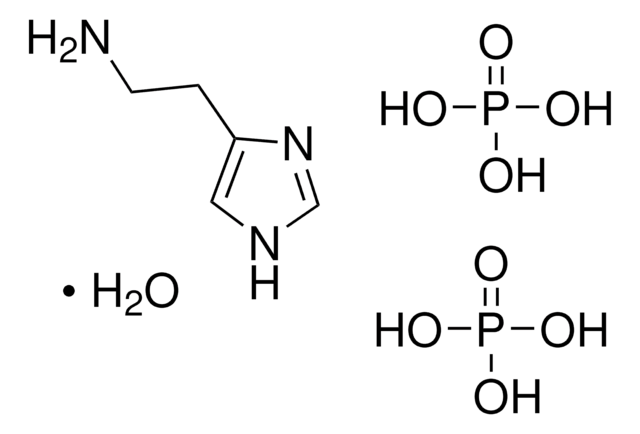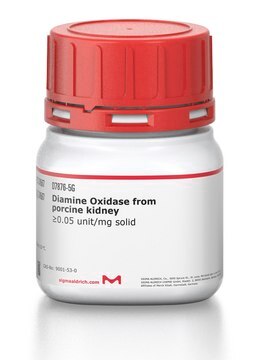H7125
Histamine
≥97.0%
Synonym(s):
2-(4-Imidazolyl)ethylamine
About This Item
Recommended Products
Quality Level
assay
≥97.0%
bp
167 °C/0.8 mmHg (lit.)
mp
83-84 °C (lit.)
storage temp.
−20°C
SMILES string
NCCc1c[nH]cn1
InChI
1S/C5H9N3/c6-2-1-5-3-7-4-8-5/h3-4H,1-2,6H2,(H,7,8)
InChI key
NTYJJOPFIAHURM-UHFFFAOYSA-N
Gene Information
human ... CA1(759) , CA2(760) , HRH1(3269) , HRH2(3274) , HRH3(11255) , HRH4(59340)
rat ... Hrh1(24448) , Hrh3(85268)
Looking for similar products? Visit Product Comparison Guide
General description
Application
- to stimulate regulated cellular secretion
- in reaction mixture to activate blood for assaying thrombin (factor iia) activity by fluorimetry
- to fill the luminal side of the chamber to investigate its effects on the TJ-related barrier and the expression of TJ (tight junction) markers in the vocal fold epithelium
Biochem/physiol Actions
related product
signalword
Danger
Hazard Classifications
Acute Tox. 3 Oral - Eye Irrit. 2 - Resp. Sens. 1 - Skin Irrit. 2 - Skin Sens. 1 - STOT SE 3
target_organs
Respiratory system
Storage Class
6.1C - Combustible, acute toxic Cat.3 / toxic compounds or compounds which causing chronic effects
wgk_germany
WGK 3
flash_point_f
Not applicable
flash_point_c
Not applicable
ppe
dust mask type N95 (US), Eyeshields, Faceshields, Gloves
Certificates of Analysis (COA)
Search for Certificates of Analysis (COA) by entering the products Lot/Batch Number. Lot and Batch Numbers can be found on a product’s label following the words ‘Lot’ or ‘Batch’.
Already Own This Product?
Find documentation for the products that you have recently purchased in the Document Library.
Customers Also Viewed
Protocols
HPLC Analysis of Biogenic Amines on Ascentis® RP-Amide
Our team of scientists has experience in all areas of research including Life Science, Material Science, Chemical Synthesis, Chromatography, Analytical and many others.
Contact Technical Service